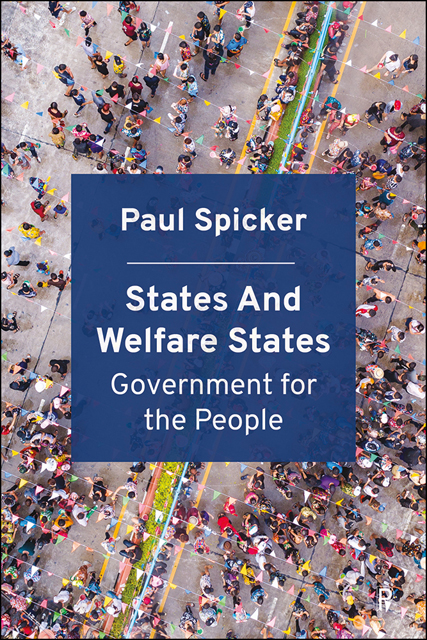3 - Public policy
Published online by Cambridge University Press: 20 June 2023
Summary
Summary
This chapter examines three main areas of public policy, common to almost all governments: economic policy, social welfare services, and policies for society.
The idea of ‘policy’ might refer, among other things, to a statement of aspirations, specific proposals, a programme for action, or a field of action. In this context, I want only to outline some broad fields of action that governments most actively engage with, because that shapes how we think of ‘the state’.
Economic policy
It is so much taken for granted nowadays that states should engage themselves in the operation of the economy that the core principle, whether a government should even have an economic policy, is hardly ever examined: what the literature focuses on, instead, is the question of what governments and states should do about it and how it should be done. At a national level, governments have a wide range of economic policy tools at their disposal. The major categories of economic policy are fiscal policy, focusing on taxation and government expenditure; monetary policy, focusing on the supply of money and interest rates; and international trade policy, determining the terms on which goods and services are exported and imported. Governments use the money they spend not just to buy goods or services, but to steer the economy, to redistribute resources, and to guide behaviour. They can use economic instruments to pursue social ends, for example, by promoting solidarity (understood as a process of recognising rights and imposing duties), deterring unhealthy conduct (taxing tobacco) or supporting activities on moral grounds (as they do in support for families, and the allowances made for religious organisations). They can alter economic behaviour through regulation (making laws or governing economic conduct), subsidy and incentives (altering the terms on which certain productive activities are paid for), and provision or purchase of goods and services. They own substantial amounts of property, and they may well be involved more directly with economic production.
The importance of direct state engagement in economic activities is often underestimated, partly because of a general distrust of state action, and partly because of an ideological presumption that if something is worth doing, it will happen regardless.
- Type
- Chapter
- Information
- States and Welfare StatesGovernment for the People, pp. 30 - 42Publisher: Bristol University PressPrint publication year: 2022



